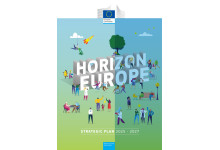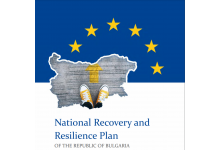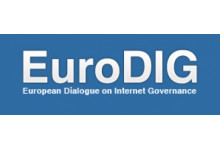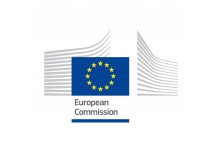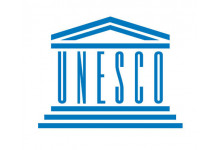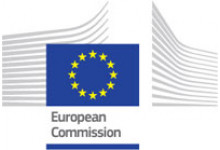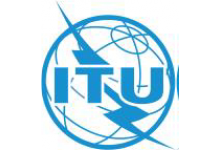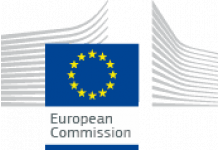IT news
On November 5, 2021, the Annual Conference of the Bulgarian Association of Cable and Communication Operators (BACCO) was held under the motto "The Big Picture". At the event was discussed key elements in the development of the telecommunications industry, the EU Recovery and Resilience Facility and the goals and activities set in the National Recovery and Resilience Plan for digitalization and connectivity, the development of e-governce and future actions of the National Regulatory Authority for the release of radio spectrum.
Hardly anyone doubts today the media has undergone revolutionary transformation and perform a ubiquitous role. Media convergence signifies not just a change, but the emergence of qualitatively new relationships between industries, markets, technologies and different types of audiences. The most striking emblem of the environment we are immersed in is social networks and their increasing impact on our life.
On behalf of the European Commission, the CEF Automated Translation Tools and Services consortium launched a survey in December 2020 to find out how European SMEs would like eTranslation (the CEF Automated Translation platform) to be improved and expanded to include new digital services. You can find the link to the survey below!
The survey focuses on four key areas identified as priorities by the European Commission:
The Forum of the World Summit on the Information Society (WSIS) will celebrate its 10th anniversary from 8 to 12 April 2019 under the slogan "Information and Communication Technologies for Achieving Sustainable Development Goals". WSIS continues to provide a platform for a "fair and equitable information society" for all stakeholders in accordance with the Geneva Action Plan.
On 20 March 2024 the European Commission (EC) has adopted the Horizon Europe strategic plan 2025-2027 for research and innovation to underpin journey to a green, digital and resilient future.
International Girls in ICT Day is celebrated every year on the fourth Thursday of April and will next be observed on 25 April 2019.
EuroDIG 2019 will take place in The Hague, the Netherlands on 19-20 June 2019.
The consolidated programme can be found here.
On 25 March 2021, the Member States, in close cooperation with the Commission, agreed on a Union-wide Connectivity Toolbox, pursuant to the Connectivity Recommendation of 18 September 2020. The Toolbox consists of a set of best practices that are considered as the most efficient in allowing and encouraging operators to roll out very high capacity networks.
The new Recovery and Resilience Facility will provide large-scale financial support for Member States' reforms and investments to mitigate the economic and social impact of the COVID-19 pandemic, and to make EU economies more sustainable, resilient to shocks and better prepared for the challenges of environmental and digital transition.
You can submit suggestions for topics to be discussed at the event by December 31, 2017.
More information can be found on the official EURODIG 2018 website.
The call for contributions is part of a legal and technical study on the legal framework to intermediary liability implementing the E-Commerce Directive within the Union's Member States.
Contributions are expected until 31 October 2017.
The United Nations Educational, Scientific and Cultural Organization UNESCO launched an "Internet Universality Indicators" public consultation based on UNESCO's Internet Universality Concept.
MTITC invites all stakeholders to actively participate in this professional consultation by completing the questionnaire in Bulgarian or English and sending it by October 20 2017.
All interested parties, including governments, public sector content holders and users, commercial and non-commercial re-users, experts and academics as well as citizens are invited to contribute.
You can find the review questionnaire here.
Within the framework of the ITU European Regional Initiative on Building Confidence and Security in the use of Telecommunications/ICTs, adopted by the World Telecommunication Development Conference 2014 (WTDC-14), Dubai, the Conference is co-organized by the Telecommunication Development Bureau (BDT) of the International Telecommunication Union (ITU) and the Polish and German Safer Internet Centres, which have been working together within the European Commission’s Safer Internet Program.
Successful candidates receive free tickets, trips and meetings, and the opportunity to submit their studies.
Application deadlines:
- ENOG 14, Minsk: 20 August 2017
- RIPE 75, Dubai: 20 August 2017
If you are doing something interesting, you can apply here.
24-25 May 2017, Ohrid, The former Yugoslav Republic of Macedonia
SEEDIG stands for South Eastern European Dialogue on Internet Governance and it is an open, inclusive and informal space for dialogue on Internet governance issues between stakeholders from South Eastern Europe and the neighbouring area.
The event is celebrated each February in more than 150 countries. This year's slogan is "Be the change: Unite for a better internet".
The slogan for the Bulgarian event is „От теб з@виси“. The main focus will be on children’s education in safer use of the Internet and mobile communications.
More information for the Bulgarian event can be found at: https://www.saferinternetday.org/web/bulgaria/sid
This consultation will help shape the future policy agenda on the European data economy. It will feed into a possible Commission's initiative in 2017 on Building the European Data Economy.
More information and a chance to participate in the consultation can be found here.









